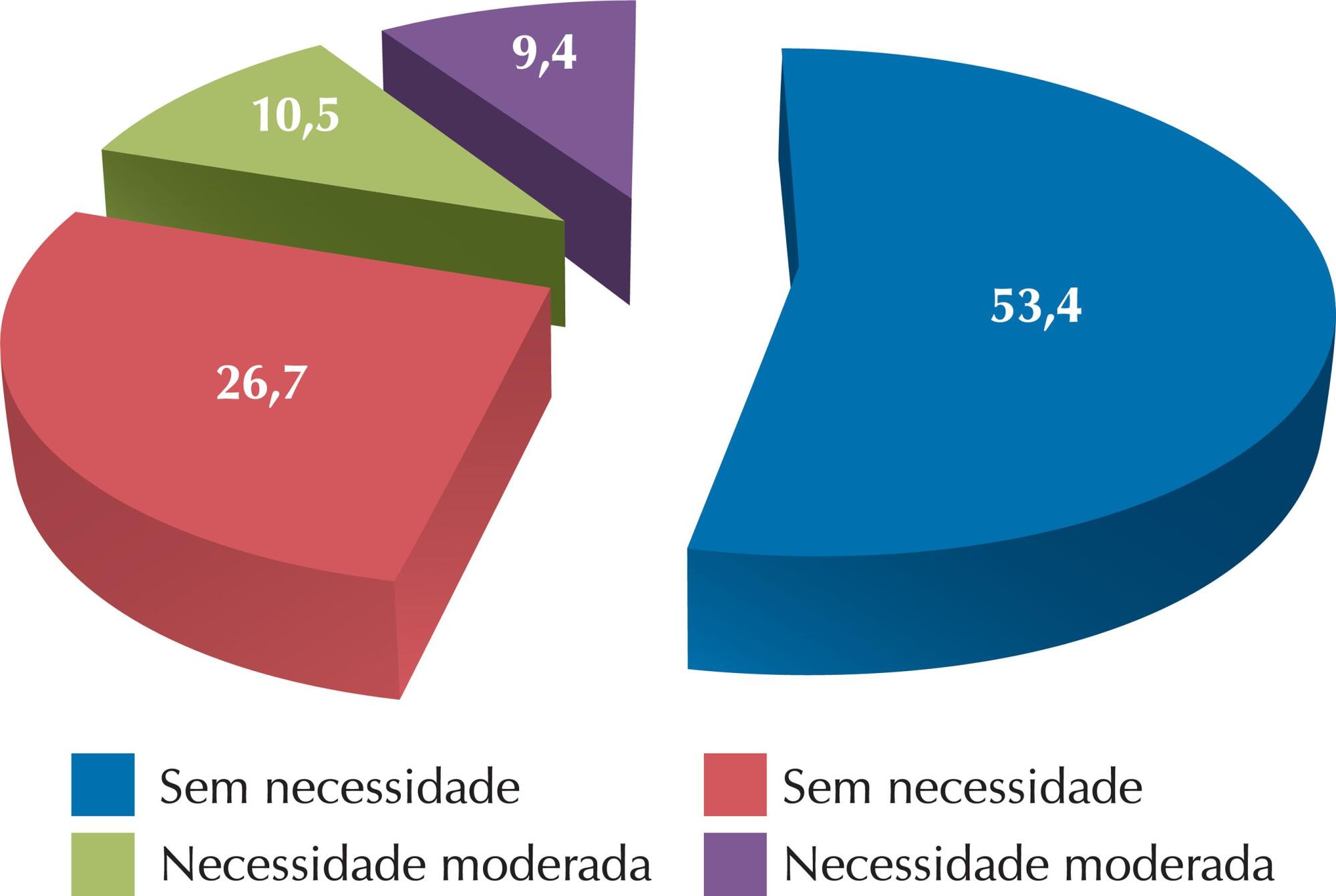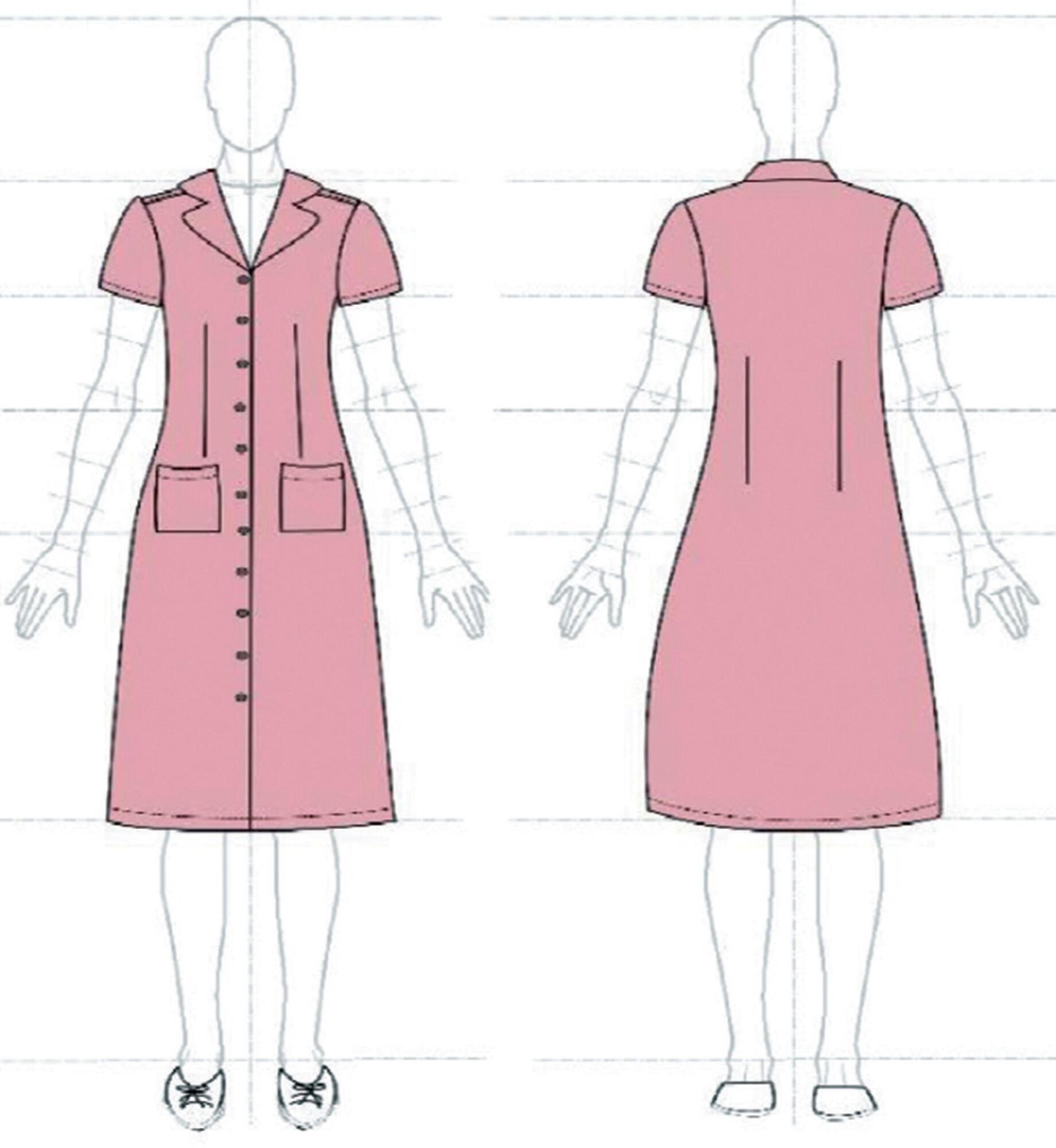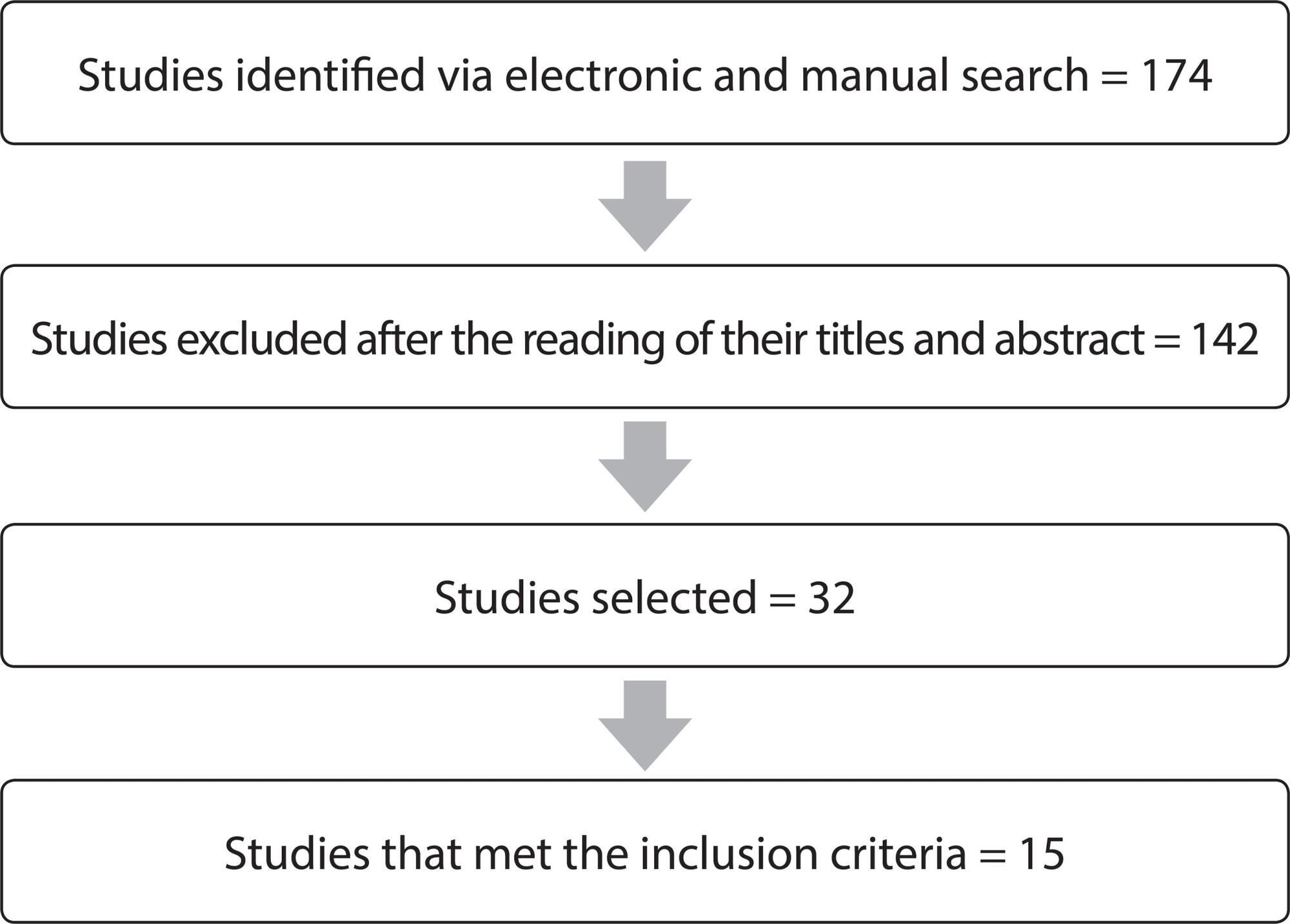-
RESEARCH01-01-2018
Contribution of academic tutoring for the teaching-learning process in Nursing undergraduate studies
Revista Brasileira de Enfermagem. 2018;71:1596-1603
Abstract
RESEARCHContribution of academic tutoring for the teaching-learning process in Nursing undergraduate studies
Revista Brasileira de Enfermagem. 2018;71:1596-1603
DOI 10.1590/0034-7167-2017-0736
Views0See moreABSTRACT
Objective:
to analyze the perceptions of professors and students on academic tutoring.
Method:
descriptive study with a qualitative approach, carried out at the Magalhães Barata School of Nursing, State University of Pará, Brazil. Twenty-seven professors and 32 students participated in the study. Data were collected through semi-structured and individual interviews, using different scripts for professors and students. For analysis, the technique of content analysis was used.
Results:
we defined three thematic categories: academic tutoring as a tool for strengthening teaching-learning; academic tutoring as a possibility of intellectual and social transformation; and reflections of academic tutoring in nurses’ training.
Final considerations:
the teaching-learning process is referred to as a process in which there must be dialogue, and in which professors, students, and tutors learn with each other, breaking the traditional paradigms of unilateral and vertical transfer of content. Academic tutoring stands out as promoter and strengthener of this process.
-
RESEARCH01-01-2018
Knowledge about precautions in Primary Health Care: tool validation
Revista Brasileira de Enfermagem. 2018;71:1589-1595
Abstract
RESEARCHKnowledge about precautions in Primary Health Care: tool validation
Revista Brasileira de Enfermagem. 2018;71:1589-1595
DOI 10.1590/0034-7167-2017-0886
Views0See moreABSTRACT
Objective:
To elaborate and validate a tool to assess knowledge and behavior of nursing professionals about standards and specific precautions in the Primary Health Care.
Method:
Methodological study of the elaboration and validation of the tool by thirteen experts judges, using a Likert scale of 4 points, with Content Validity Index ≥ 0.80, on clarity, relevance and pertinence.
Results:
A tool composed of 47 dichotomous questions to assess knowledge and 12 questions, with five options of answers, for the referred behavior. In the validation, only one item was deleted, related to the “Hands Hygiene” axis and one item was reformulated, regarding “Use of Common Gloves” and another 11 changed writing. The tool as a whole was assessed for relevance, comprehensiveness and representativeness within the scope of the topic investigated.
Conclusion:
The developed tool has been validated and is now available for use in Primary Health Care.
-
RESEARCH01-01-2018
Rethinking the Health Care Model through the reorientation of training
Revista Brasileira de Enfermagem. 2018;71:1580-1588
Abstract
RESEARCHRethinking the Health Care Model through the reorientation of training
Revista Brasileira de Enfermagem. 2018;71:1580-1588
DOI 10.1590/0034-7167-2017-0055
Views0See moreABSTRACT
Objective:
to understand the contributions of the National Program of Reorientation of Professional Training in Health (Pró-Saúde) for the change in the model of care and training of health professionals.
Methods:
a case study with representatives of the teaching, care, management and social control, participants of the management units of the Pró-Saúde (Charitable institution for social and hospital assistance), in a municipality of the south of Brazil. Data collection took place through interviews and observations between October 2012 and February 2013.
Results:
the Program acts as a device for the transition of health care and training models, by promoting the problematization of daily work and the approximation between teaching and service. Emphasis is placed on the importance of the subjects’ commitment and the different perspectives on the community.
Conclusion:
Pró-Saúde leaves visible marks in the process of qualifying students and professionals, as well as promoting collaborative action in the fields of management, care, teaching and social control in the SUS (Brazilian Unified Health System).
-
RESEARCH01-01-2018
Critical incidents involving Semiology during practical activities of nursing undergraduates
Revista Brasileira de Enfermagem. 2018;71:1572-1579
Abstract
RESEARCHCritical incidents involving Semiology during practical activities of nursing undergraduates
Revista Brasileira de Enfermagem. 2018;71:1572-1579
DOI 10.1590/0034-7167-2017-0364
Views0See moreABSTRACT
Objective:
To identify critical incidents (situations, behaviors and feelings) during practical activities, involving knowledge and skills related to the discipline of Semiology and Semiotics.
Method:
Descriptive research using the critical incident technique, with the Snow Ball technique for the selection of participants and an instrument for collection of data. The reports were categorized according to the elements of the critical incident (situations, behaviors and feelings).
Results:
A total of 62 reports from senior (n = 46), sophomore and junior (n = 16) students were analyzed. The students were predominantly female (90.3%). The majority described a situation of a physical examination, expressed mastery of the skills necessary for the activity and reported positive feelings.
Conclusion:
The reports showed that the knowledge and skills acquired in the discipline allowed for a development of practical activities with familiarity and positive feelings. The importance that the students attribute to the recognition of the activities by the professor, the patient and family stands out.
-
01-01-2018
ERRATA
Revista Brasileira de Enfermagem. 2018;71:1569-1569
Abstract
ERRATA
Revista Brasileira de Enfermagem. 2018;71:1569-1569
DOI 10.1590/0034-7167.201871suppl3e01
Views0No artigo “Idoso e demanda de cuidador: proposta de classificação da necessidade de cuidado”, com número de DOI: , publicado no periódico Revista Brasileira de Enfermagem, v71(suppl 2):897-904, na página 901, na Figura 3:Onde se via:[…]See more
-
RESEARCH01-01-2018
Nurses’ knowledge and competencies for preceptorship in the basic health unit
Revista Brasileira de Enfermagem. 2018;71:1564-1571
Abstract
RESEARCHNurses’ knowledge and competencies for preceptorship in the basic health unit
Revista Brasileira de Enfermagem. 2018;71:1564-1571
DOI 10.1590/0034-7167-2016-0533
Views0See moreABSTRACT
Objective:
to describe the actions performed by nurses in the preceptorship of students in the Basic Health Unit (Portuguese acronym: UBS); to identify the knowledge of nurses and competencies they need to acquire or develop in order to act in the preceptorship of students in the UBS; to discuss the implications of the pedagogical practice of preceptor nurses in their own continuing education.
Method:
qualitative, descriptive and exploratory nature. Scenario: A UBS. Participants: six preceptor nurses. Data collection: semi-structured interview.
Results:
Bardin’s content analysis was used. Emerging categories: Approaching the concept of preceptor and the teaching role; The fragile institutional recognition of UBS as a field of internship and the offer of knowledge of preceptors: overcoming difficulties; Preceptor nurses’ performance in face of dynamics of facts arising and shaping the reality in a UBS; Opportunities and limitations of the pedagogical practice implying on continuing education.
Conclusion:
it is necessary to discuss and rethink the strategies of interest of preceptors and develop their competencies.
-
RESEARCH01-01-2018
The nurse training in research in the undergraduate education: teaching perceptions
Revista Brasileira de Enfermagem. 2018;71:1556-1563
Abstract
RESEARCHThe nurse training in research in the undergraduate education: teaching perceptions
Revista Brasileira de Enfermagem. 2018;71:1556-1563
DOI 10.1590/0034-7167-2017-0511
Views0See moreABSTRACT
Objective:
To analyze how the approach of the theme “scientific investigation” can contribute to the development of the scientific competence of the Nursing student.
Method:
A descriptive-exploratory, case-study, qualitative study was carried out with professors from a public university in the South of Brazil. Data were collected through a semi-structured individual interview and a group interview, called the conversation circle.
Results:
Data analysis consisted of three categories: “Research as a structuring theme and scientific principle in undergraduate student training in Nursing”; “Research as a structuring theme and scientific principle in undergraduate student training in Nursing”; “Sap research and educational principle in the integrated curriculum”.
Conclusion:
Research training can occur at all undergraduate academic moments, providing the student with the knowledge of scientific research as a formative content and as an investigative attitude, in order to enable the development of scientific competence in professional practice.
-
RESEARCH01-01-2018
Clothing and professional identity in the training of nurses in the city of Juiz de Fora
Revista Brasileira de Enfermagem. 2018;71:1548-1555
Abstract
RESEARCHClothing and professional identity in the training of nurses in the city of Juiz de Fora
Revista Brasileira de Enfermagem. 2018;71:1548-1555
DOI 10.1590/0034-7167-2017-0522
Views0See moreABSTRACT
Objective:
To understand the meaning of the transformations that occurred in the clothing of EEHB students and their role in the construction of a professional identity of nurses in Juiz de Fora.
Method:
Historical and social qualitative study from 1965 to 1978. Oral and written sources were used. Oral sources were produced with the Thematic Oral History technique, with 10 collaborators. The theoretical frameworks used were the concepts of identity of Claude Dubar, and concepts of clothing and their symbolic meanings of Roland Barthes.
Results:
The EEHB nursing students’ uniform represented a brand, an essential symbol in the construction and consolidation of the nurse’s identity in the city of Juiz de Fora.
Conclusion:
The uniform was recognized as an object of identification of nurses in the city, giving them a social image of credibility for their training.

-
ORIGINAL ARTICLE08-19-2019
Suffering and defense in work in a mental health care service
Revista Brasileira de Enfermagem. 2019;72(4):903-909
Abstract
ORIGINAL ARTICLESuffering and defense in work in a mental health care service
Revista Brasileira de Enfermagem. 2019;72(4):903-909
DOI 10.1590/0034-7167-2018-0140
Views0See moreABSTRACT
Objective:
to know the suffering and the strategies of defense of CAPS AD III workers, from the perspective of the Work Theater proposed by Dejours.
Method:
a descriptive qualitative research, of the case study type, with CAPS AD III workers, using as theoretical framework the Psychodynamics of Work.
Results:
CAPS AD III professionals identify that the suffering in the work arises from the frustration between the real and the prescribed one; by the hegemony of practices guided by the biomedical model; stigmatization and prejudice with users; and the limitations of the Health Care Network (Rede de Atenção à Saúde). As an individual defense strategy, the rationalization was defined, and as a collective strategy, the protection strategy.
Final considerations:
worker uses strategies of defenses to face suffering and give a new meaning to it, characterizing themselves as ways of apprehending, understanding and giving meaning and new looks to their work.
-
ORIGINAL ARTICLE10-21-2019
Self-confidence in the care of critically ill patients: before and after a simulated intervention
Revista Brasileira de Enfermagem. 2019;72(6):1618-1623
Abstract
ORIGINAL ARTICLESelf-confidence in the care of critically ill patients: before and after a simulated intervention
Revista Brasileira de Enfermagem. 2019;72(6):1618-1623
DOI 10.1590/0034-7167-2018-0758
Views0See moreABSTRACT
Objective:
To evaluate the self-confidence of nurses in the care of critically ill patients, before and after a simulated intervention.
Method:
A quasi-experimental study was carried out with 103 nurses who participated in a workshop on the care of critically ill patients in the first semester of 2016. A clinical simulation pedagogical instrument was used throughout the event, and self-confidence was assessed by the Portuguese version of the Self-confidence Scale (SCSvp).
Results:
Most participants reported not being prepared to provide first care to critically ill patients, which was carried out during care practice. The participants presented a significant increase in self-confidence after the simulated intervention (p<0.001) in the cardiac, neurological, and respiratory dimensions.
Conclusion:
Simulation has proved to be an effective strategy for the development of individuals’ self-confidence, which contributes to the improvement of skills required for professional practice.
-
ORIGINAL ARTICLE03-03-2021
Trend of transplants and organ and tissue donations in Brazil: a time series analysis
Revista Brasileira de Enfermagem. 2021;74(1):e20200058
Abstract
ORIGINAL ARTICLETrend of transplants and organ and tissue donations in Brazil: a time series analysis
Revista Brasileira de Enfermagem. 2021;74(1):e20200058
DOI 10.1590/0034-7167-2020-0058
Views0See moreABSTRACT
Objectives:
to indentify the time trend of rates of organs and tissues effective donors, of reports and types of transplanted organs per million people of the Brazilian population.
Methods:
ecological study, of time series, about reports of organ donations and on transplants. The data were provided by the Registro Brasileiro de Transplantes and analyzed using polynomial regression.
Results
an increasing trend was found for potential donors and effective donors, with an average increase of 2.33 and 0.92 per year, respectively. The South Region had the highest rate of potential donors (83.8) and effective donors (34.1) and the North Region, the lowest rate (20.2 and 3.9). The family refusal was the main obstacle to accomplish the donation.
Conclusions
the results show an increasing trend of potential donors and effective donors throughout Brazil, with emphasis on the southern region of the country. Among the main reasons for non-donation, it is worth emphasizing family refusal and medical contraindication prescription.
-
09-16-2019
Sociodemographic and health profile of TB/HIV co-infection in Brazil: a systematic review
Revista Brasileira de Enfermagem. 2019;72(5):1389-1396
Abstract
Sociodemographic and health profile of TB/HIV co-infection in Brazil: a systematic review
Revista Brasileira de Enfermagem. 2019;72(5):1389-1396
DOI 10.1590/0034-7167-2018-0285
Views0See moreABSTRACT
Objective:
to ascertain the epidemiological profile of TB/HIV co-infection in Brazilian scenarios.
Method:
this is a systematic review conducted via electronic search in databases PubMed, EMBASE, LILACS and SciELO, having as inclusion criterion articles based on the Brazilian scenario of TB/HIV co-infection.
Results:
of the total 174 studies, 15 were selected, revealing the epidemiological profile of the co-infection in different scenarios: male, economically active age, low education level, brown/black ethnicity, low income, heterosexual, pulmonary clinical form, alcoholism and Directly Observed Therapy.
Conclusion:
the sociodemographic and epidemiological profile of people with TB/HIV co-infection has an expected occurrence pattern, which corroborates articles found in the literature, either at national level or by grouping the studies according to region or state.

-
ORIGINAL ARTICLE09-24-2022
Nurses’ performance in palliative care: spiritual care in the light of Theory of Human Caring
Revista Brasileira de Enfermagem. 2022;75(1):e20210029
Abstract
ORIGINAL ARTICLENurses’ performance in palliative care: spiritual care in the light of Theory of Human Caring
Revista Brasileira de Enfermagem. 2022;75(1):e20210029
DOI 10.1590/0034-7167-2021-0029
Views1See moreABSTRACT
Objectives:
to analyze nurses’ role in assisting patients in palliative care, with emphasis on the spiritual dimension, in the light of Theory of Human Caring.
Methods:
this is an exploratory, qualitative study, carried out in a hospital in João Pessoa, Paraíba, between August and December 2019, with 10 nurses. For data collection, semi-structured interviews were used. For analysis, we opted for content analysis.
Results:
the spiritual dimension of care is contemplated by several religious and spiritual practices. These are respected and encouraged by nurses, although there is difficulty in providing care for the spiritual dimension.
Final Considerations:
nurses have attitudes consistent with Jean Watson’s Theory and apply the Caritas Process elements during assistance to patients’ spiritual dimension in palliative care.
-
ORIGINAL ARTICLE10-21-2019
Mental health in primary health care: health-disease according to health professionals
Revista Brasileira de Enfermagem. 2019;72(6):1609-1617
Abstract
ORIGINAL ARTICLEMental health in primary health care: health-disease according to health professionals
Revista Brasileira de Enfermagem. 2019;72(6):1609-1617
DOI 10.1590/0034-7167-2018-0743
Views0See moreABSTRACT
Objective:
to analyze perceptions of the Family Health Strategy (FHS) professional team about mental health-disorder and to identify health actions developed by the team for people with mental disorders.
Method:
a qualitative study of a Marxist theoretical framework and a dialectical method. 99 FHS middle and higher level professionals from São Paulo participated. Semi-structured interviews were conducted. Data were submitted to ALCESTE software and Thematic Content Analysis.
Results:
there were three empirical categories: Training in Mental Health; Perception of the FHS professional about mental health-disorder; and Health actions developed by the FHS team with people with mental disorders. Actions that converge and diverge from the psychosocial care model were identified.
Final considerations:
there is an effort from professionals to work according to the psychosocial care model, but it is necessary to invest in the Permanent Education in Health of these professionals to overcome barriers and foster successful territorial actions.
-
ORIGINAL ARTICLE12-07-2020
Sarcopenia screening in elderly in primary health care: nurse knowledge and practices
Revista Brasileira de Enfermagem. 2020;73:e20200421
Abstract
ORIGINAL ARTICLESarcopenia screening in elderly in primary health care: nurse knowledge and practices
Revista Brasileira de Enfermagem. 2020;73:e20200421
DOI 10.1590/0034-7167-2020-0421
Views0See moreABSTRACT
Objective:
Describe the knowledge and practices of the Primary Health Care nurse on sarcopenia screening in the elderly.
Methods:
Qualitative study conducted with 24 Primary Health Care nurses. The data was collected through semi-structured interviews, recorded and later transcribed. The speeches were grouped in thematic categories, later analyzed, supported by Paulo Freire’s reference.
Results:
The findings showed that the primary care nurses’ knowledge of sarcopenia screening in the elderly was incipient and fragile. This reality is reflected in a gap in practice, although some instruments already require the registration of characteristics indicative of sarcopenia, such as the evaluation of the calf circumference.
Final Considerations:
The need to train nurses to perform sarcopenia screening and to implement a promotional and preventive care plan, which will result in improving the quality of life of the elderly assisted in Primary Care, was highlighted.
-
05-28-2021
Are symptoms of depression and anxiety in nursing students associated with their sociodemographic characteristics?
Revista Brasileira de Enfermagem. 2021;74:e20200503
Abstract
Are symptoms of depression and anxiety in nursing students associated with their sociodemographic characteristics?
Revista Brasileira de Enfermagem. 2021;74:e20200503
DOI 10.1590/0034-7167-2020-0503
Views0See moreABSTRACT
Objective:
to investigate symptoms of depression and anxiety and their association with the sociodemographic characteristics of undergraduate nursing students.
Methods:
a cross-sectional analytical study carried out with students from the Faculty of Nursing at Universidade Federal de Juiz de Fora from June to July 019. Data were collected through a sociodemographic questionnaire and the Beck Depression and Anxiety Inventories.
Results:
192 students participated, with a mean age of 21.44 (±3.56) years. 85.93% of participants were female. The mean depression score was 22.40 (±12.35), and anxiety was 17.56 (±11.98). There was a difference in the mean of the scales for sex and psychotropic drugs (p<0.05). Women presented moderate and severe classification for both scales. Severe symptoms prevailed among students from the 6th to the 10th semester (18.22%).
Conclusion:
there was an association between depression and anxiety symptoms related to gender and psychotropic drugs.
Search
Search in:
Nuvem de Tags
Enfermagem (930)Cuidados de Enfermagem (269)Atenção Primária à Saúde (239)Idoso (208)Educação em Enfermagem (151)Segurança do Paciente (150)Saúde Mental (145)Educação em Saúde (139)Estudos de Validação (131)Qualidade de Vida (104)Tecnologia Educacional (100)Promoção da Saúde (99)COVID-19 (91)Criança (91)Família (87)Enfermagem Pediátrica (86)Saúde do Trabalhador (86)Adolescente (85)Saúde Pública (82)Estudantes de Enfermagem (77)



